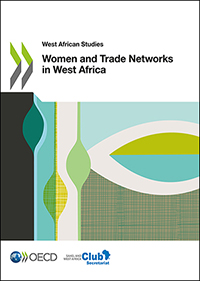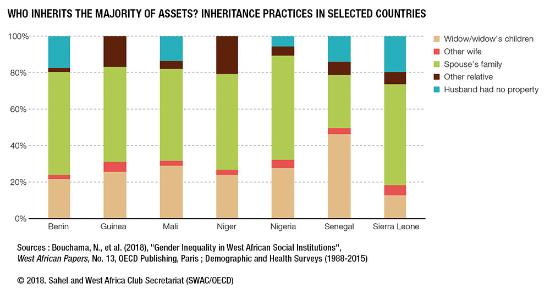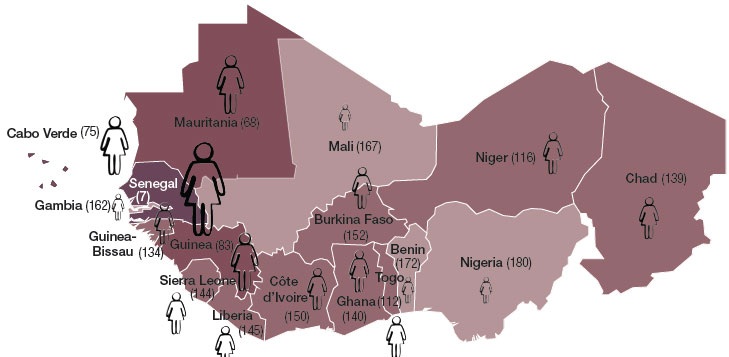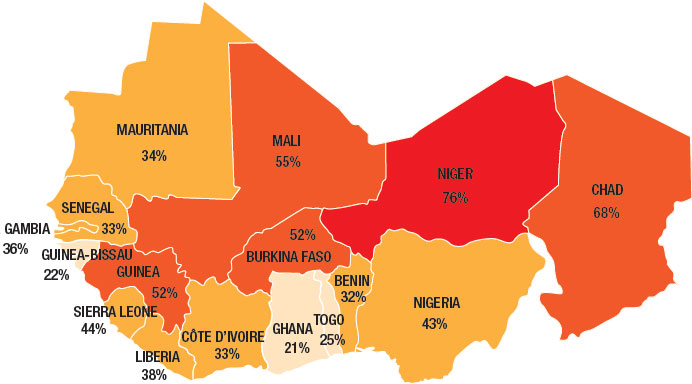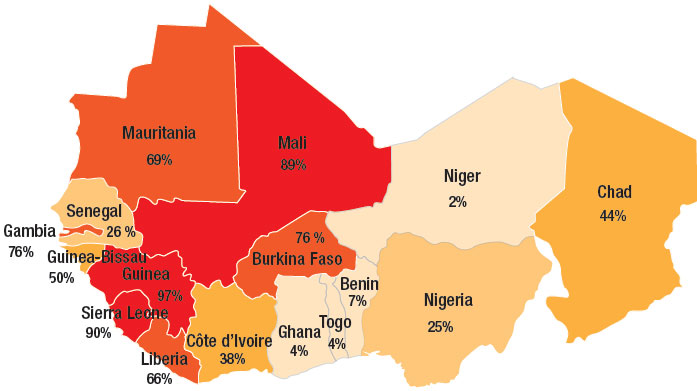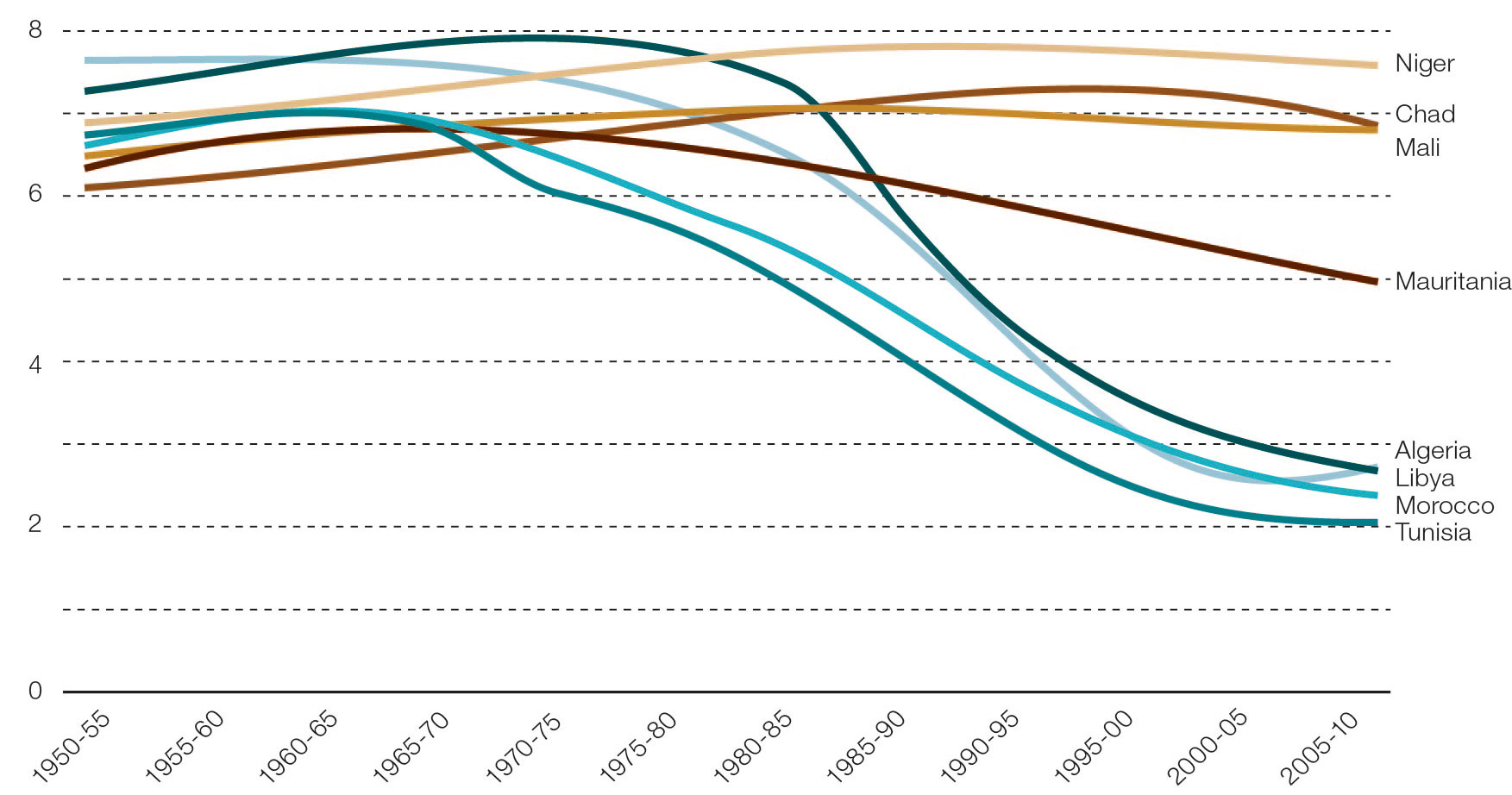Gender
In West Africa, large gender disparities persist. Women and girls are disadvantaged in many areas and don’t enjoy the same opportunities as their male counterparts. This is true for almost all public sectors, ranging from unequal access to basic social services, unequal property rights and persistent gender gaps in the labour market and in the public sphere. Since the mid-2000s, however, almost every West African country and regional organisation has adopted a gender policy or strategy and is increasingly mainstreaming gender issues in different policy sectors. The SWAC Secretariat seeks to inform these policies and strategies by analysing how women’s trade networks function and through a regional database on discrimination against women.
Analysing how women’s trade networks function
Women make a significant contribution to West Africa's food economy, perpetuating a long tradition of commerce and participating in cross-border trade and regional outreach. Their activities face numerous obstacles but also present important opportunities, highlighted in this report through an unprecedented relational and spatial analysis of social networks. The study focuses on the rice sector in the Dendi region (Benin, Niger and Nigeria) and on the regional governance networks that support women's entrepreneurship. It confirms that Nigeria occupies a privileged position due to its demographics and growing urbanisation. The report proposes the development of innovative public policies based on the reinforcement of the social capital of women and policy approaches that promote better integration of the initiatives undertaken by governments, international and non-governmental organisations to empower women and strengthen their resilience.
Statistics and analyses on discrimination against women
The OECD Development Centre’s Social Institutions and Gender Index (SIGI) is a cross-country measure of discrimination against women in social institutions across 160 countries. This index is based on a large number of variables, such as women’s legal rights (marriage, divorce, and inheritance), early marriage practices, violence against women, and access by women to land or financial services. The Sahel and West Africa Club Secretariat supported and contributed to a regional SIGI report on West Africa, including statistical data and comparative analyses. The report and update of the database provides a strong evidence base to more effectively consider issues of social and economic discrimination against women in strategies and policies.
Find out more
- Publication:Women and Trade Networks in West Africa
- Paper: Gender Inequality in West African Social Institutions
- Brochure: Mapping women's trade networks
- Paper: Women's Roles in the West African Food System
- Maps & Facts: Women in parliament in West Africa
- Maps & Facts: West African girls are being married off too young
- Maps & Facts: Female genital mutilation/cutting (FGM/C)
- Blog: Girls robbed of their childhood in the Sahel
- Blog: Gender equality in West Africa: Actions speak louder than words
- Blog: Empowering women is key to improving food security and resilience in West Africa

